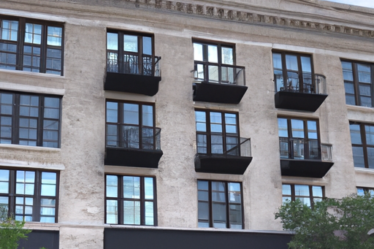
The Impact of Rising Insurance Costs on Small Hospitality Businesses
The hospitality industry is a vital sector of the economy, providing jobs and services to millions of people around the world. However, small businesses in this industry are facing a significant challenge in the form of increasing insurance costs. These rising costs have far-reaching implications for small hospitality businesses, affecting their ability to operate and thrive in an already competitive market.
One of the most immediate impacts of rising insurance costs is the strain it puts on the financial resources of small hospitality businesses. Insurance is a necessary expense for any business, but when the costs become exorbitant, it can become a burden that eats into profits and limits growth opportunities. Small businesses often operate on tight budgets, and any increase in expenses can have a significant impact on their bottom line.
Moreover, rising insurance costs can also lead to a decrease in the availability of coverage options for small hospitality businesses. Insurance providers may be hesitant to offer coverage to businesses in this industry due to the perceived risks associated with it. This can leave small businesses with limited options, forcing them to settle for inadequate coverage or pay higher premiums for the coverage they need. In either case, it puts them at a disadvantage compared to larger competitors who can afford more comprehensive insurance plans.
Another implication of increasing insurance costs is the potential for reduced investment in the hospitality industry. Small businesses are often the lifeblood of local economies, creating jobs and attracting tourists. However, when insurance costs become too high, it becomes difficult for these businesses to attract investors or secure loans to expand their operations. This lack of investment can stifle growth and innovation in the industry, ultimately impacting the overall economy.
Furthermore, rising insurance costs can also lead to a decrease in the quality of services offered by small hospitality businesses. When businesses are forced to cut costs to compensate for higher insurance premiums, they may have to make compromises in other areas, such as staff training, maintenance, or upgrading equipment. This can result in a decline in the overall customer experience, leading to decreased customer satisfaction and loyalty.
In addition to the financial and operational implications, increasing insurance costs can also have a psychological impact on small business owners in the hospitality industry. Running a small business is already a challenging endeavor, requiring dedication, hard work, and a passion for serving customers. When insurance costs rise, it can create a sense of frustration and helplessness among business owners who feel that they have little control over these external factors. This can lead to increased stress and burnout, further impacting the success and sustainability of small hospitality businesses.
In conclusion, the implications of increasing insurance costs in the hospitality industry are far-reaching and significant. Small businesses in this sector face financial strain, limited coverage options, reduced investment opportunities, decreased service quality, and psychological stress. It is crucial for policymakers, insurance providers, and industry stakeholders to work together to find solutions that address these challenges and support the growth and sustainability of small hospitality businesses. By doing so, we can ensure that this vital sector continues to thrive and contribute to the economy for years to come.
Strategies for Managing and Mitigating Increasing Insurance Expenses in the Hospitality Sector

Understanding the Implications of Increasing Insurance Costs in the Hospitality Industry
The hospitality industry is no stranger to the rising costs of insurance. As businesses in this sector face a multitude of risks, from property damage to liability claims, insurance coverage is essential for protecting their assets and ensuring their long-term viability. However, the increasing costs of insurance can put a strain on the financial health of hospitality businesses, making it crucial for them to develop strategies to manage and mitigate these expenses.
One of the primary reasons for the escalating insurance costs in the hospitality industry is the growing number of claims. With more people traveling and staying at hotels, the likelihood of accidents and incidents occurring on the premises increases. This, in turn, leads to higher claim payouts by insurance companies, which are then passed on to the businesses in the form of increased premiums. To address this issue, hospitality businesses must focus on risk management and prevention.
Implementing comprehensive risk management strategies is key to reducing the frequency and severity of accidents and incidents. This can include conducting regular safety inspections, training staff on proper procedures, and maintaining a clean and well-maintained environment. By proactively addressing potential risks, businesses can minimize the number of claims filed, thereby reducing their insurance costs.
Another strategy for managing increasing insurance expenses is to shop around for the best coverage and rates. Insurance is a competitive industry, and different providers may offer varying levels of coverage and pricing. By obtaining quotes from multiple insurers and comparing their offerings, hospitality businesses can find the most cost-effective policies that meet their specific needs. It is important to note that while cost is a significant factor, businesses should also consider the reputation and financial stability of the insurance provider.
In addition to shopping around, businesses can also consider adjusting their coverage limits and deductibles to better align with their risk tolerance and financial capabilities. Increasing deductibles can help lower premiums, but it is essential to ensure that the deductible amount is manageable in the event of a claim. Similarly, reassessing coverage limits can help avoid over-insuring or under-insuring the business, striking a balance between adequate protection and affordability.
Collaborating with industry associations and participating in risk management programs can also be beneficial for hospitality businesses. These organizations often have access to resources and expertise that can help businesses identify and address potential risks. By leveraging the collective knowledge and experience of industry professionals, businesses can gain valuable insights into best practices for managing insurance costs.
Finally, businesses should regularly review their insurance policies to ensure they are up to date and accurately reflect their operations. As the hospitality industry evolves, so do the risks associated with it. By regularly reviewing and updating policies, businesses can ensure they have the appropriate coverage for their current needs, avoiding any potential gaps in protection.
In conclusion, the increasing insurance costs in the hospitality industry can have significant implications for businesses in this sector. However, by implementing effective risk management strategies, shopping around for the best coverage and rates, adjusting coverage limits and deductibles, collaborating with industry associations, and regularly reviewing insurance policies, businesses can manage and mitigate these expenses. By taking a proactive approach to insurance, hospitality businesses can protect their assets, ensure their long-term viability, and provide a safe and enjoyable experience for their guests.
Exploring the Long-Term Effects of Higher Insurance Costs on the Hospitality Industry
Understanding the Implications of Increasing Insurance Costs in the Hospitality Industry
The hospitality industry is no stranger to challenges, and one of the most pressing issues it faces today is the rising cost of insurance. As insurance premiums continue to climb, businesses in the hospitality sector are left grappling with the long-term effects of these increased costs. In this article, we will explore the implications of higher insurance costs on the hospitality industry and shed light on the challenges that businesses in this sector face.
First and foremost, it is important to understand why insurance costs are on the rise in the hospitality industry. One of the main factors contributing to this increase is the growing number of claims being filed. With more people traveling and staying at hotels, the likelihood of accidents and incidents occurring also increases. This, in turn, leads to higher insurance claims and subsequently higher premiums for businesses in the hospitality sector.
The implications of these rising insurance costs are far-reaching. For starters, businesses in the hospitality industry are forced to allocate a larger portion of their budget towards insurance expenses. This means that they have less money available for other important aspects of their operations, such as marketing, staff training, and facility upgrades. As a result, businesses may find it challenging to remain competitive in an industry that demands constant innovation and improvement.
Furthermore, higher insurance costs can also have an impact on the quality of service provided by businesses in the hospitality industry. With limited financial resources, businesses may be unable to invest in the necessary equipment and technology to ensure the safety and comfort of their guests. This can lead to a decline in customer satisfaction and ultimately, a decrease in repeat business.
Another implication of increasing insurance costs is the potential for job losses within the hospitality industry. As businesses struggle to cope with higher premiums, they may be forced to cut costs in other areas, including staffing. This can result in reduced working hours, layoffs, or even the closure of establishments altogether. The loss of jobs not only affects the employees directly, but also has a ripple effect on the local economy, as fewer people have disposable income to spend on other goods and services.
In addition to these immediate effects, higher insurance costs can also have long-term consequences for the hospitality industry. Businesses may become more risk-averse, limiting their offerings and experiences to minimize the potential for accidents or incidents. This can stifle innovation and creativity within the industry, as businesses become more focused on avoiding liability rather than providing unique and memorable experiences for their guests.
In conclusion, the increasing insurance costs in the hospitality industry have significant implications for businesses operating in this sector. From financial constraints to a decline in service quality and potential job losses, the effects of higher premiums are far-reaching. It is crucial for businesses in the hospitality industry to find ways to mitigate these costs, whether through risk management strategies, negotiating with insurers, or exploring alternative insurance options. By understanding the implications of increasing insurance costs, businesses can better navigate the challenges they face and continue to thrive in an ever-evolving industry.


